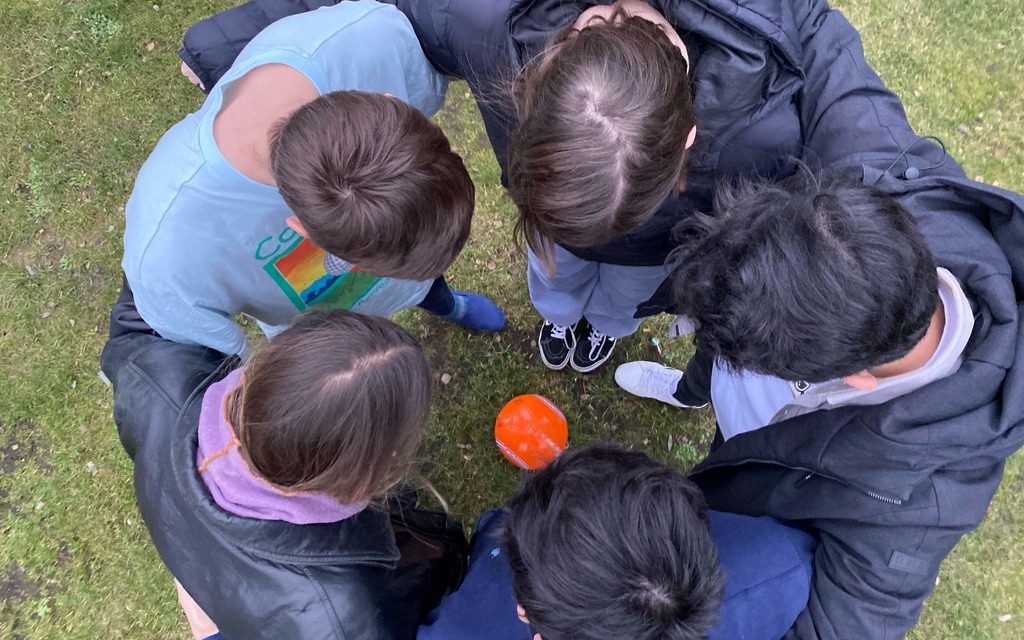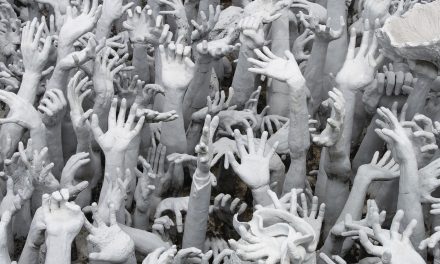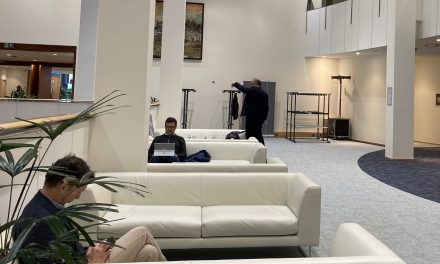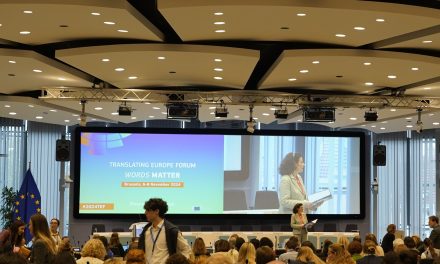From Berlin to Munich, Germany is an evergrowing country of diversity. Celebrating its traditional roots, whilst also displaying its communities reaching all corners of the world. From Turkish to Polish, to Syrian culture; Germany has it all to offer. The country is becoming more and more diverse, with immigration rates continually increasing and more refugees travelling to Germany.
The Human Rights Watch (HRW) reported that Germany has seen a 33.2% increase in refugee applications in recent years. The country reported a population of over 1.24 million refugees in 2021. However, the attitudes of the country are slow, unlike its population rate.
Germany has a long and dark history of xenophobia. However, since the 2015 European refugee crisis, there has been an increase in xenophobic sentiment. This has been fuelled by the rise of far-right groups such as the National Democratic Party of Germany (NPD). In late 2022, there was a series of anti-immigration protests held around the country.
Last December, I travelled to Berlin to speak with Landessportbunt (LSB). They are a renowned organisation amongst sporting clubs in Berlin. Funded by the Government, their Sportbund initiative connects refugees with hundreds of sporting clubs across the country’s capital. By connecting them with clubs, Sportbund works to integrate refugees into Berlin communities, as well as providing coaching jobs to those eligible. I spoke with Sport Integrations Coach Felix Mecklenburg at their head office.
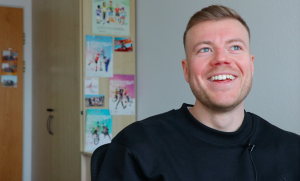
Image: Felix Mecklenburg, Sportbund ‘Sport Integrations Coach’ and facilitator
“[New refugees] don’t have a lot of chances to go out of these shelters.”, Mecklenburg explained. “With our programme, with the sport, you can get them out of these shelters. They can go to a sports facility. They can do sport. It’s great to have fun; to connect to other people. As when you’re new to a country, you can learn the language, you get new contacts, you can get friends”.
The programme receives annual funding from the Federal Government Commissioner for Migration, Integration and Refugees surmounting to almost 900,000 euros in 2022. This programme is also spreading with Federal Government support also being provided to other state sporting organisations, similar to LSB, across the country.
Later that week I spoke with Antonio Manco, a basketball coach and volunteer at DBV Charlottenburg. We met at Übergangswohnheim Marienfelder Allee, a refugee temporary accommodation shelter. The rain poured upon my arrival to the refugee shelter, and the centre felt stranded. People hid from the cold inside, outside puddles of rain drowning the concrete court. The gloominess of the day did not, however, drown the spirit of some of the shelter’s children. Central to the shelter, a single court stands, where children gather, in spite of the rain to kick around a ball and shoot some hoops.
Each week Manco meets with children living in the shelter to play basketball. He showed me how they like to “try to teach the children how to handle the ball, to dribble, to shoot, and pass and to play defence. And then at the end, we would play a game”. “They have something to do which is not to be underestimated in such a shelter”, Manco emphasised.
The small, grassroots program has successfully operated over four different shelters in Berlin. “[At one point], we had a huge group of boys and girls playing together sometimes groups upwards of 20 people every week.”, Manco explained.
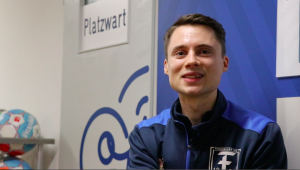
Image: Dominik Hirndorf, Friedenauer Football Club & Ukraine Refugee Project coach and facilitator
Another community I met with during my time in Berlin was the Friedenauer Football Club. They have been associated with Sportbund through their Ukraine Refugee Project, supporting Ukrainian children and their families who are new to Berlin. I spoke with Dominik Hirndorf, the program’s coach and operational manager.
Hirndorf spoke proudly about how this program has transformed the mindsets of their sports community. “Our ‘German’ kids also see it. It becomes visible for them what the problem is and what these [refugee] children have been going through”, Hirndorf explains.
“It is nice to set an example of how our club looks at the world and which values we have to ban racism here”, Hirndorf articulated. He proceeded to say that, “to support refugees really gives the people a visible sign of what it means to be a place of zero racism”.
There have been a variety of studies in recent years exemplifying why programs like that of DBV Charlottenburg and the Ukraine Refugee Project are important. A United National High Commissioner for Refugees (UNHCR) and Global Compact on Refugees research found that by including refugees in sporting clubs, we foster an environment that empowers individuals and provides a sense of resilience that will help them to deal with various circumstances in everyday life.
A study performed by the International Journal of Sport Policy found that integrating refugees and migrants into local sporting clubs and communities greatly fosters of sense of belonging and community.
The UNHCR has also shown that it benefits refugees of all ages. For youth, it provides an environment that helps with social development and allows them to feel a sense of inclusion which is often lacking in circumstances involving displacement or refuge. For adults, it provides a place where they can meet new people from Germany, something that can be quite difficult when seeking refuge.
Mecklenburg pressed how programs like these can also “be a great opportunity for the clubs to educate themselves and their members. So they learn new cultures, they broaden their horizons”.
Research at the University of Berlin found that programs like these discussed have been proven to directly promote German cultural literacy. By including refugees in local sporting communities, facilitates direct engagement between refugees and ‘native Germans’ and breaks down cultural and societal barriers.
Despite a long history of accepting mass numbers of refugees. Berlin, known for its multicultural and diverse population, hopes to lead the way and set an example to the rest of Germany in not only integrating refugees but empowering immigrants and ‘native Germans’ alike.
Disclaimer: for the safety and security of associated refugees the first image of this article has been later staged.
